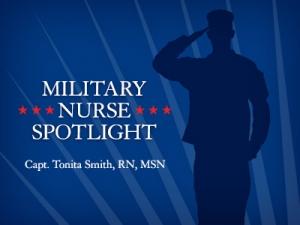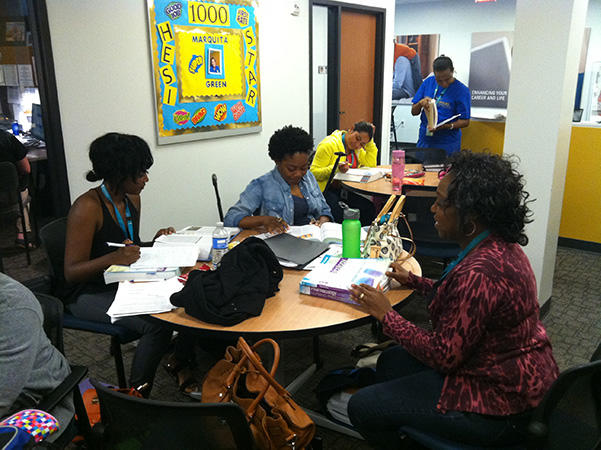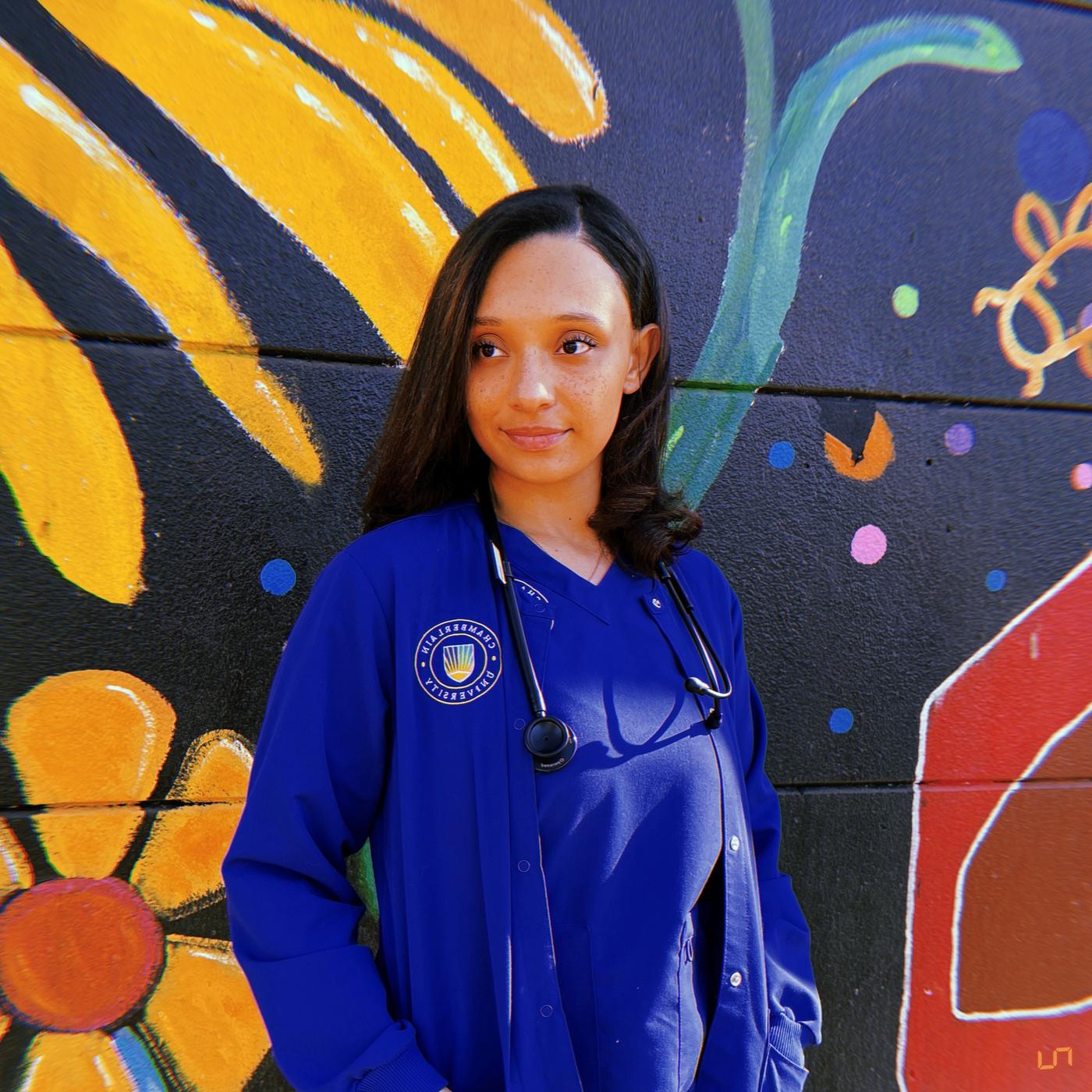Featured
Tags
Share
- Home / Blog / Campus News / Military Nurse Spotlight: Capt. Tonita Smith, RN, MSN
Military Nurse Spotlight: Capt. Tonita Smith, RN, MSN

U.S. Military Nurse Capt. Tonita Smith, RN, MSN, began her journey as a licensed practical nurse in the military. While serving, she obtained her BSN and MSN at Chamberlain College of Nursing. Today, she is an active-duty Army Captain, stationed at Fort Leonard Wood, Mo.
How did you decide to enter the military?
One of my good friends looked into the Navy. She learned that the Navy and other branches of the military needed nurses. We decided we were going to do a buddy system and join the military. Once we did our research she backed out and by then I was already on board. I later found out that the Army was offering a sign-on bonus if you had the skills [in advance] instead of having to send you to training. It was a program called Stripes for Skills; you entered as what the Army considers rank of E4, which is a specialist, and you are given guaranteed duty station.
Did you have any fears entering as a military nurse? If so, how did you overcome those fears?
The biggest fear I had to deal with was the fear of the unknown. It was mind over matter. [It was hard] going into the military not knowing what to expect and basing it off of things you saw on TV or what people said. It was a lot of physical intensity, but it was nothing like what you see on TV. I was older, 28, when I joined, and there were a lot of 18- and 19-year-olds to whom I was able to mentor because I was more experienced.
Describe something you accomplished when you were serving.
A big accomplishment was being able to go back and get my bachelor's degree. While I was in Hawaii for three years, I was always looking for opportunities to go back to school. I knew I wanted to stay [in the military], but I also knew I wanted to become a registered nurse. I found out that the military had a program called The Army Enlisted Commissioning Program. If you could find a school and complete your BSN in fewer than three years, the army would not only pay for your education but they would also allow you to stay on active duty. Once I was approved, I started looking for schools. At the time Chamberlain was called Deaconess. I talked to one of the advisors who let me know what prerequisites I needed prior to starting a program. It was major because it allowed me to cross over from enlisted to officer status. It was a huge accomplishment to be able to serve while being full-time military and being a full-time student.
Can you recall a challenging moment that stands out to you?
You are always under the pressure or think that you may get deployed. Prior to starting school, my [school start] date had been delayed because I was told I was going to be deployed. Before any deployment, the military sends you out for training for 2 weeks; I got everything ready as if I was going to Iraq. Since I thought I was going to Iraq, school was going to have to be put off for a year because at the time the deployments lasted 12 months. I went to Colorado for training, which was very challenging because they would put you through some very intense exercises like make-shift bombings, shootings and mass casualties. We were trained like it was the real thing. [Before being deployed,] someone else volunteered to deploy, not knowing that they were going to take my place. When this person volunteered, I was taken back off the list.
Do you believe serving in the military has made you a better nurse?
I definitely do. I think what has made me better is [twofold]. No. 1: I know that I am serving my country. No. 2: I am allowed to take care of soldiers who are also serving, risking their lives for our country as well as our independence. When a soldier comes back injured, I'm able to help them. It’s the whole idea behind Florence Nightingale's mission: giving back, taking care of your patients and delivering quality care.
What was different from what you expected before and after serving in the military?
In the military we are like a family. They offer you a lot of ongoing training. They are constantly making sure your skill set is good. Civilian nurses may see opportunities depending on where you work, but with the military it comes with the nature of the job. I'm never worried about losing my job; if you get bored with an area there are always opportunities to move somewhere else.
What are some tips and advice for students and graduates who want to become a military nurse?
First and foremost, you have to have the right motive. You have to have a heart and a passion to serve people. If you don’t, then you are going to burn out fast and you’re not going to get far as a nurse. With the military, you definitely need to have strong, thick skin and to make sure that what you are doing works for your family as well as yourself. You don’t need any distractions or anything that serves as something negative that can cause you to fail--you have to remove those things. It’s all about setting goals and making your mindset, "this is what I’m going to do and this how I’m going to do it."
Learn more about Chamberlain's military program.
By John Loafman
More from Campus News
Request More Information
To receive the Chamberlain University Program Guide, including associated career paths, please select a program of study.






